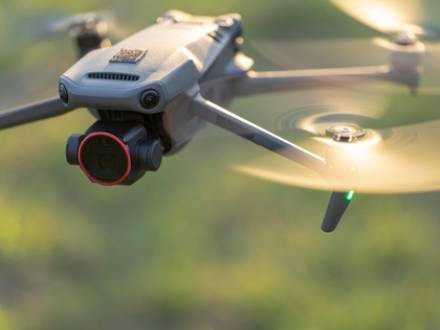Wisconsin’s Stance on Restricting Warrantless Drone Use
 Drones have become one of law enforcement’s most powerful, yet controversial, tools. From tracking suspects to documenting accident scenes, the Wisconsin police departments increasingly rely on aerial footage to prove criminal defense charges. However, the same technology that aids investigations can also raise deep constitutional issues regarding warrantless surveillance, especially a citizen’s right to privacy.
Drones have become one of law enforcement’s most powerful, yet controversial, tools. From tracking suspects to documenting accident scenes, the Wisconsin police departments increasingly rely on aerial footage to prove criminal defense charges. However, the same technology that aids investigations can also raise deep constitutional issues regarding warrantless surveillance, especially a citizen’s right to privacy.
Wisconsin law (Section 175.55) generally prohibits the use of drones to gather evidence or conduct surveillance where a person has a reasonable expectation of privacy. The exceptions to this statute include instances where a search warrant is authorized or when exigent circumstances are present. There are also exceptions for emergency response, accident reconstruction, and public safety events.
What do not currently exist are statutory limits on long-term monitoring, data retention, or "pattern of life" observations. Because this is such a new area of law, it is imperative that you speak to a knowledgeable Ozaukee County, WI criminal defense lawyer if you are being charged with a crime based on the use of a warrantless drone.
Federal Laws Regarding Warrantless Drone Use by Police
The Fourth Amendment protects citizens from unreasonable searches and seizures in areas where there is a reasonable expectation of privacy. In Florida v. Riley, the U.S. Supreme Court found that a warrantless search from a helicopter hovering at 400 feet was constitutional. The police, believing an individual was growing marijuana, flew over his property in a helicopter, where they could clearly see the marijuana plants.
The court held that because any member of the public could have legally flown in that airspace and seen the same things, there was no expectation of privacy. The increasing capabilities of drone technology bring a new challenge to this precedent. A modern, camera-equipped drone can fly down until it is directly above a person’s house or could even conceivably enter an open door of an outbuilding.
The question becomes whether this technology is so advanced – and so intrusive – that it violates the reasonable expectation of privacy protected by the Fourth Amendment. Although federal law controls airspace, state laws can place additional restrictions on how law enforcement uses drones. What has never been settled is whether low-altitude hovering over private backyards or fenced areas constitutes a "search."
How Does the Open Fields Doctrine and "Curtilage" Factor Into Whether Drone Surveillance is Allowed?
The Open Fields Doctrine of 1924 allows police to search any undeveloped or unoccupied land outside the home’s "curtilage" without a warrant, under the theory that there is no reasonable expectation of privacy in these areas. Curtilage is the area immediately surrounding a home that is considered a part of the home for legal purposes, such as the yard, the porch, and other areas used for private activities. Drones are far more advanced and can fly lower, hover in place, and use advanced cameras and sensors to observe areas that would typically be hidden from public view, which muddies the legal waters.
Curtilage is the area immediately surrounding a home that is considered part of the home for legal purposes, extending Fourth Amendment protections against unreasonable searches and seizures to that area. It includes the yard, porch, and other areas used for domestic activities, and its scope is determined by factors such as proximity to the home, enclosure, the area's intended use, and the privacy measures taken by the resident.
Wisconsin Restraints Against Drone Use
Agencies must establish retention limits and audit protocols regarding warrants needed for property surveillance, crowd monitoring, and event observation. Defense attorneys may challenge drone evidence as "fruit of the poisonous tree" if obtained without proper authorization. Victims of unlawful drone surveillance can potentially sue under Section 995.60 or bring a privacy tort action.
Contact a Jefferson County, WI Criminal Defense Lawyer
A defense lawyer may be able to challenge the admissibility of drone evidence under the Fourth Amendment or through the open fields vs. curtilage distinction. Home fencing, posted signage, and a limited line of sight can bolster privacy claims. The sooner you have a highly skilled Ozaukee County, WI felony crimes attorney from Bucher Law Group, LLC by your side, the better your outcome is likely to be. Attorney Bucher spent 20 years as the Waukesha County District Attorney and has litigated thousands of criminal cases. Call 262-446-9222 to schedule your free consultation.














 262-446-9222
262-446-9222 262-446-9885
262-446-9885






